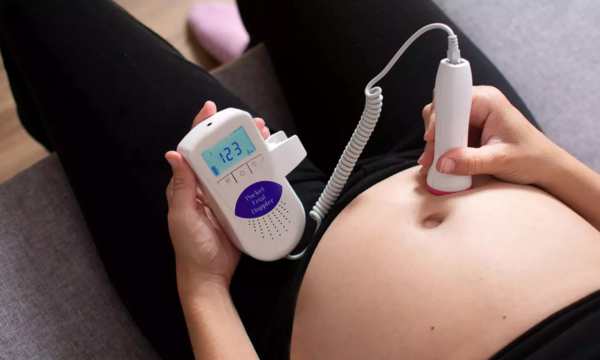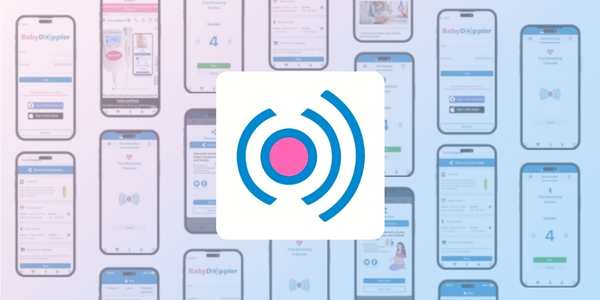How to Monitor Your Baby’s Fetal Heartbeat
Monitoring to the fetal heartbeat is like tuning into the melody of the love growing inside you.
Ad
Have you ever found yourself trying to monitor that magical sound coming from your belly? Yes, we’re talking about the fetal heartbeat, that “thump-thump” that melts our hearts!
The fetal heartbeat is more than just a beautiful sound. It’s an important indicator of your baby’s health and development.
Ad
Each beat tells a story – the story of your little one preparing to come into the world. It’s as if your baby is sending a coded message: “Hi, mommy! I’m here, growing strong and healthy!”
In this article, we’ll explore everything you need to know about fetal heartbeats. From what they are exactly, to how and when to start monitoring them.
We’ll show you the various methods to enjoying this precious sound and address the safety of monitoring at home.
And, of course, we’ll share some valuable tips for effective monitoring. So, settle in comfortably (after all, comfort is everything during this phase, right?) and let’s embark on this exciting journey together!
What are Fetal Heartbeats?
The fetal heartbeat is the steady rhythm of your baby’s tiny heart growing inside your belly, a beat full of life that symbolizes the beginning of a new journey.
Imagine this: that little motor starts working in the early weeks of pregnancy! It’s amazing to think that, even before you feel any changes in your body, your baby’s heart is already working at full speed.
Your baby’s heart starts beating around the 5th week of pregnancy, long before you even know you’re pregnant!
At this early stage, fetal heartbeats are incredibly fast, as if the tiny heart is rushing to grow and strengthen, ready to sustain the life that is just beginning.
As the pregnancy progresses, the fetal heartbeat stabilizes and follows a strong, steady rhythm. By around the 12th week, the baby’s heart beats between 110 and 160 times per minute, much faster than an adult’s, as if it’s full of energy and enthusiasm to develop!

Ultrasound-to-hear-the-babys-heartbeat-(Source-Google)
When to Start Monitoring Fetal Heartbeats?
The excitement to hear the fetal heartbeat is immense, and it’s no wonder—this is one of the most emotional moments of pregnancy! But you need a bit of patience. Typically, it’s possible to detect them from the 10th week of pregnancy.
However, many doctors prefer to wait until the 12th week for the first listen. This is because, by this time, the fetal heartbeats are stronger, more rhythmic, and easier to hear, providing an even more exciting and clear experience for the parents.
From this point, monitoring the fetal heartbeat becomes part of the prenatal routine. It’s important to remember that every pregnancy is unique. Some moms may hear the heartbeats earlier, others a little later.
Traditional Methods to Hear Fetal Heartbeats
There are various ways to hear fetal heartbeats. Let’s explore the most common methods:
- Ultrasound: This method offers a more complete view. In addition to hearing the fetal heartbeat, you can also see the tiny heart beating on the screen.
- Fetal Doppler: This is the most common method. The fetal doppler is a device that uses sound waves to detect the sound of fetal heartbeats. It’s widely used during prenatal visits.
- Stethoscope: Although less accurate, stethoscope auscultation can also be used. This method is generally more effective in later stages of pregnancy. It’s a traditional technique where the doctor listens directly to the heartbeat, strengthening the monitoring of fetal health.
Monitoring Fetal Heart Rate at Home
- Smartphone Apps: There are various apps available that can detect your baby’s heartbeat using the phone’s microphone. While they can be fun, it’s important to remember that these apps should not replace medical monitoring.

Fetal-Doppler-to-monitor-the-babys-heart-(Source-Google)
Is it Safe to Monitor Your Baby’s Heartbeat at Home?
Many moms wonder if they can monitor the heartbeat at home. While there are devices available for home use, it’s important to exercise caution.
Monitoring should mainly be done by healthcare professionals. They have the necessary knowledge to correctly interpret the sounds.
If you choose to use a home device, remember: it does not replace prenatal visits. Use it only as a supplement and always under medical guidance.
Keep in mind that heartbeats can vary throughout the day. If you can’t detect them at one moment, try again later. Your baby may be in a position that makes it harder to hear.
Tips for Effective Monitoring
To ensure efficient monitoring of the fetal heartbeat, consider the following tips:
- Keep your prenatal appointments up to date. Your doctor will know the best time for each exam and can guide you regarding fetal heartbeats.
- Try to relax when monitoring to the heartbeats. Stress can affect your perception and even your baby’s heart rate.
- Note any changes in the heartbeat and inform your doctor. Remember, each pregnancy is unique.
- Enjoy each moment of monitoring to the heartbeats. It’s a unique experience that strengthens the bond between you and your baby.
- Avoid extreme stress, as it can affect your baby’s heartbeat. Seek relaxing activities like prenatal yoga or meditation.
- If you can’t detect the fetal heartbeat at home, don’t panic. It may just be a matter of positioning or the stage of pregnancy.
Celebrate every time you hear the fetal heartbeat. It’s a precious reminder of the life growing inside you!
By following these tips, you can make the most of the experience of monitoring your baby’s heartbeat.
Always remember that every pregnancy is unique, so don’t compare your baby’s heartbeats to those of other pregnancies. The important thing is to enjoy this special moment and strengthen the bond with your little one.
Conclusion
Monitoring the fetal heartbeat is one of the most exciting experiences of pregnancy. It’s the sound of life developing, a prelude to the symphony that will be your baby’s arrival.
Each “thump-thump” is a promise of love, a unique connection between you and your little one. So, take a deep breath, relax, and enjoy every moment of this incredible journey.
Always remember: the heartbeat is more than an indicator of health. It’s the soundtrack of your love growing every day. Take care of yourself, take care of your baby, and let this sound fill your heart with joy!
 The Benefits of Massage During Pregnancy and Postpartum
The Benefits of Massage During Pregnancy and Postpartum
Pregnancy is an extremely special time in a woman’s life, full of physical and emotional transformations. Ad […]
More Signs of Pregnancy: Know the First Symptoms
Signs of Pregnancy: Know the First Symptoms
Your body speaks: discover the early signs of pregnancy and what they mean. Ad The suspicion of […]
More Tips for a More Comfortable Pregnancy
Tips for a More Comfortable Pregnancy
Pregnancy, in addition to being a time of joy and happiness for any woman, is also a […]
More